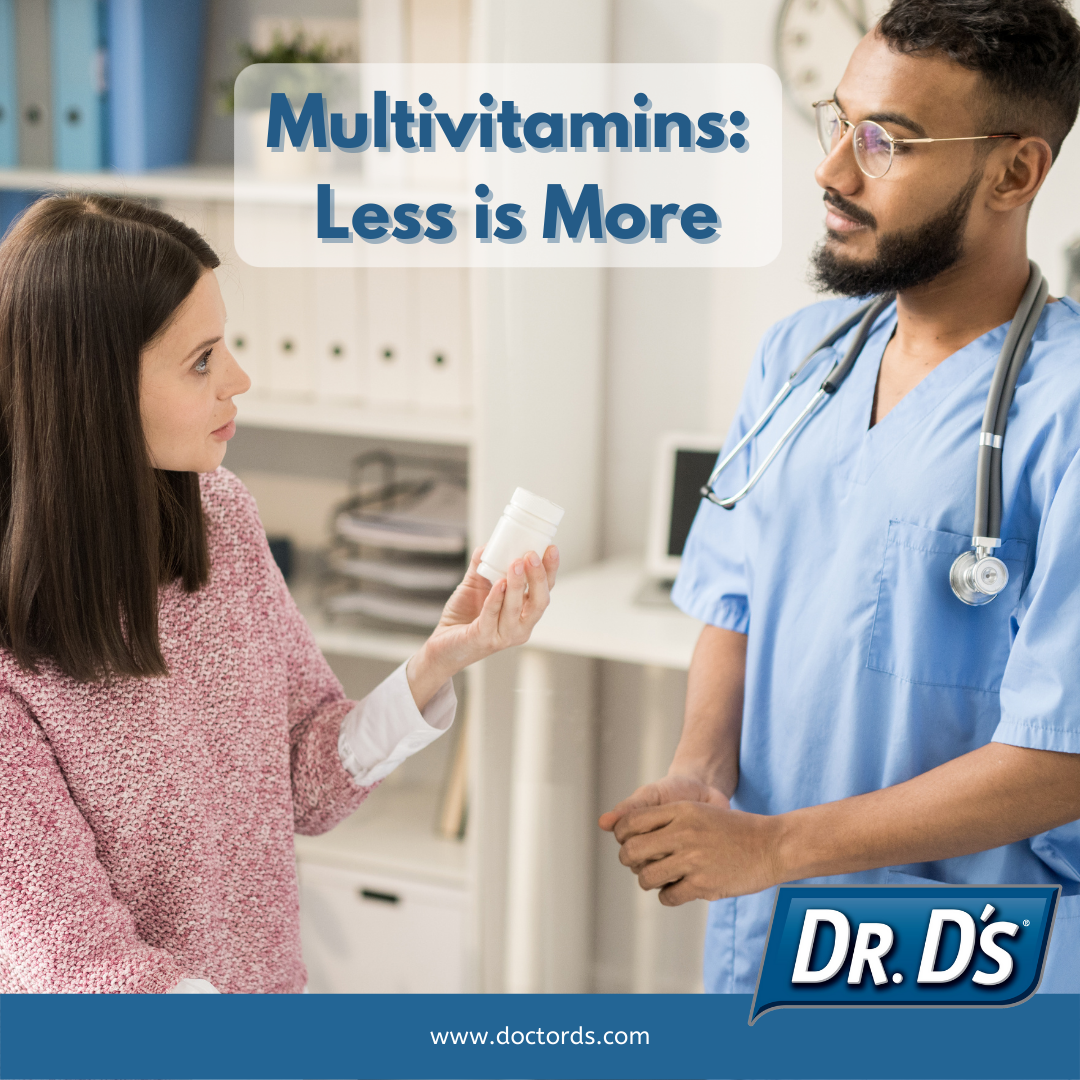
Multivitamins: Less is More
Share
An excerpt from Dr. D’s book, The Power of Turmeric, Less is More chapter.
What happens if you take a lot of vitamins and your body doesn’t need them? First of all, if you take everything at once, it can be counterproductive as one supplement might affect the absorption of another.1 Also, your liver and kidneys have to break down and filter everything you eat and supplements are no exception. The more you take, the harder your liver, kidneys and digestive system have to work. Vitamins can put undue strain on your liver, and even cause liver damage if you don’t need them.2 Excess vitamin supplementation can be toxic and inflammatory.3 For example, if you are taking a vitamin B complex and your urine turns bright yellow, that means you have enough of it already and your body is filtering it out. In other words, your kidneys are working harder than they need to. I’ve heard people say, “That’s how you know it’s working.” No- that’s how you know your body’s working…too hard! Similarly, too much vitamin D can be as bad for you as too little- excess amounts can be bad for your heart.4
Vitamin supplements are harder to process than food because they usually exist in an unnatural, concentrated form that the body doesn’t readily recognize. This can push your body into oxidative stress.
So if you’re taking something “just in case” but it’s not helping to reduce inflammation or helping to fight free radicals, you might be inviting harmful effects by introducing extra work for your body. Then, not only does your body have to attack all of the free radicals that it’s already dealing with, it now has to breakdown all of the supplements and filter them out too!
Vitamin supplementation can also disturb your body’s regular processes. For example, if you replace your body’s own enzymes with something external, it might start shutting down its own internal supply of those enzymes. Your body can become dependent on it, which isn’t a good thing. You want to support your body’s natural healing processes, not replace them.5
The bottom line is: If you don’t need to be taking vitamins, the research suggests it’s better not to take them. Do your best to keep your body in a state of balance. Don’t throw off your body’s natural equilibrium. There are people who live to be over 100 years old in different parts of Europe without taking vitamin supplements. They regularly eat a Mediterranean diet, which is abundant in fruits, vegetables, nuts, whole grains, fish and healthy oils. This diet keeps their inflammation down. They are proving to us that we don’t need to take all these added vitamins and supplements in order to live longer or to have a better quality of life.
As you may recall from the blog…the only reasons you should be taking supplements are to supplement a deficiency, to reduce or prevent inflammation, and to build up your body’s supply of antioxidants.
Turmeric is a supplement that is both an anti-inflammatory and antioxidant.6 In fact, it’s the most tested and proven supplement that fulfills both of these health-promoting functions.
Get the full story! Grab your copy of Dr. Di Stefano’s book, The Power of Turmeric, here.